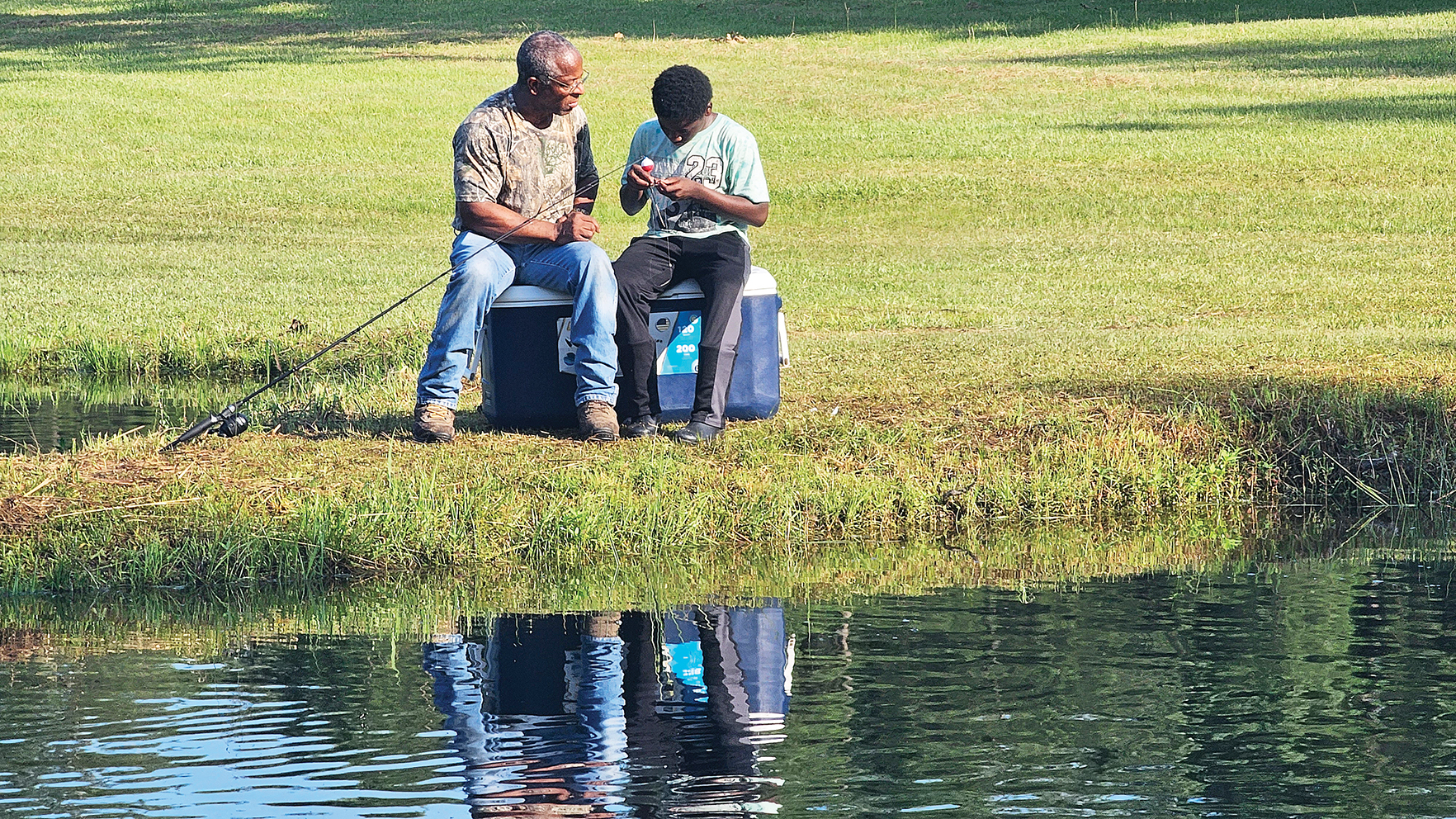Fighting against animal abuse
Published 9:15 pm Saturday, May 16, 2015

Photo by KAITLIN MULLINS
Achilles searches for a new owner at Brookhaven Animal Rescue League’s BarkFest. His former owner poured hot grease over him. Achilles was adopted later that day and currently resides at his new home.
Those charged with investigating animal abuse and those who work with the aftermath say cases of animal cruelty are not uncommon, and far too often are they shockingly severe.
Most cases of animal cruelty do not result in criminal charges, as the process can often be difficult to navigate due to lack of education or, more likely, resources. Local law enforcement officers have said often those called to respond to suspected animal cruelty focus on educating owners or otherwise resolving the issue rather than punishment. However, if this is not possible, animals are often seized after a second incident or follow-up.
In the fall of 2014, the FBI included animal cruelty offenses in its Uniform Crime Report. Before this, there was no process for capturing animal cruelty data on the statewide or national level. Gathering data is difficult because animal cruelty laws are enforced by a large number of local police, sheriffs, animal control officers and humane society agents.
Trending
Wayne Pacelle, president and CEO of The Humane Society of the United States, said the inclusion could be a real incentive for law enforcement agencies to pay more attention to animal cruelty incidents. With accurate data, he said, law enforcement agencies will also be better able to allocate officers and financial resources to handle these cases.
Overwhelming evidence links animal cruelty, especially of an aggravated nature, to domestic violence and is often a predicator of sociopathic or psychopathic violent behavior when witnessed or perpetrated by young children. With more reports coming to light linking animal cruelty to interpersonal violence and other criminal activity, any severe cases are particularly unsettling.
In a recent Brookhaven Board of Alderman meeting, one city resident appealed to the board to enforce state cruelty laws after she discovered a tenant of hers who was hoarding animals.
Gail Onesi said she has witnessed people starving pets or leaving animals in houses when they vacate. Onesi said a tenant had about 10 emaciated, sickly dogs seized. The tenant then acquired a second set of dogs and continued to starve them as well.
“This last thing I came across was the worst thing I’ve ever seen,” Onesi said. “I found out one of the dogs died the same day [it was rescued,] and then four dogs total died. So I’m begging you to do something. If you don’t do anything to deter them they will get more and more.”
Lincoln County Sheriff Steve Rushing said his department gets a call from people concerned about an animal being neglected, most often chained in the elements for extensive periods or looking emaciated, at least once a week.
Trending
Animal Control Officer Roxanne Norton said the horrors she and police officers witness with every call would shock people, as most people do not or do not want to realize how prevalent animal cruelty is.
“There’s so much animal abuse out there, and it just kills me,” Norton said. “I want to do something, but I just can’t.”
Norton said she doesn’t have the resources to patrol all areas in the county, or take on the kinds of cases that are prevalent in the more rural areas where more people have animals.
“Dealing with the public is the worst,” she said. “We have dogs and cats in traps, and by the time we get out there, they’ve been set on fire. That’s the kind of stuff we deal with.”
“The officers feel the same way when they have to deal with the same situation,” she said. “When they see the animals like we see them, and they see [abused] children. I’ve had to come across a lot of the children [that have been victims of abuse] and you’re thinking ‘You know how poor and bad conditions these dogs are in, and these people have children?'”
One recent instance of severe animal cruelty that has a happy ending is that of a dog named Achilles. Achilles is a sweet, loving animal who was up for adoption at the Brookhaven Animal Rescue League’s annual Barkfest event last week. Achilles has visible damage including a large, twisting scar over his back and side after his abusive owner doused Achilles in hot grease.
Achilles had been up for adoption for several months before he was adopted as a result of the Barkfest fundraising event Mother’s Day weekend. Achilles represents a large population of rescue pets whose scars from animal cruelty are physical as well as emotional.
According to the Mississippi Code, persons convicted of simple cruelty to an animal are guilty of a misdemeanor, and second-offense aggravated cruelty is a felony.





